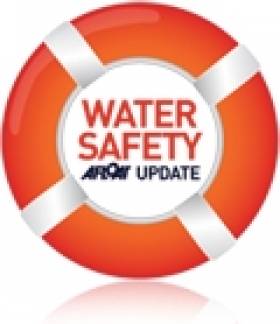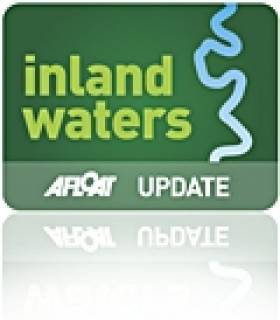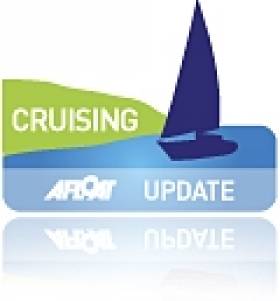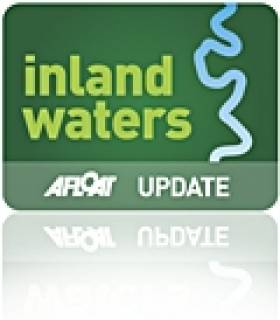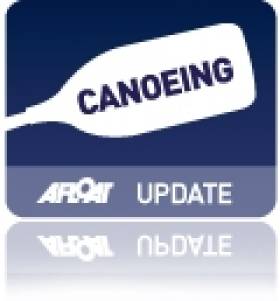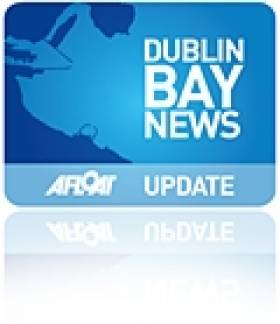Displaying items by tag: River Liffey
Boy Drowns in Liffey, Diver Treated for Bends
Gardaí have confirmed that a 14-year-old boy drowned in the River Liffey near Clane, Co Kildare on Saturday.
According to The Irish Times, it is believed the accident occurred while the teen was playing in the river with friends. His body was removed to Naas hospital.
Elsewhere, RTÉ News reports that a diver is being treated for the bends after getting into difficulty in the sea near Kilkee, Co Clare on Sunday.
The man was airlifted by the Shannon coast guard to Galway's University Hospital after being retrieved by colleagues.
Sailors Plan Month Long Journey from Shannon to Liffey and Back
Nenagh resident and inland waterways enthusiast, Nick Theato, single-handed aboard 'Bo-Bo, a five metre Pedro trailer/sailer and Pat Kelly, Killadangan, with his son Andrew in 'Shu-Ra-Nu', a 6 metre Etap 20 trailer/sailer, plan to raise funds for Lifeboats Ireland by undertaking the IWAI Green & Silver Challenge in June, 2011. Their fundraising target is €5,000.00.
On the 25th June, 1946, Tom and Angela Rolt left Athlone aboard 'Le Coq', a 28ft.x8ft. converted ship's lifeboat on a voyage that would inspire contemporary and successive generations of inland waterways enthusiasts.
Tom Rolt wonderfully documented the voyage in his book 'Green & Silver', published in 1949, which has since become a classic. This work was instrumental in inspiring the small group who founded the Inland Waterways Association of Ireland in 1954, whose objective was to save the Shannon navigation from strangulation by low bridges. Indeed, the colour scheme of the IWAI's logo and burgee derive from the cover design of Rolt's book.
With the re-opening of the Royal Canal in October 2010, it is now possible to retrace Rolt's journey in full and complete the circular route formed by the Royal Canal, River Liffey, Grand Canal, River Shannon and Camlin River.
To celebrate this event, the IWAI has initiated the 'Green & Silver Challenge' in an effort to encourage people to make the circular journey. Nenagh resident, Nick Theato single-handed aboard 'Bo-Bo, a 16 foot Pedro trailer/sailer and Pat Kelly, Killadangan, with his son Andrew aboard 'Shu-Ra-Nu', a 20 foot Etap trailer/sailer, plan to raise funds for Lifeboats Ireland by travelling the full Green & Silver Route throughout June 2011.
Departing on June 1st, they will travel from Dromineer through Lough Derg and Lough Ree and enter the Royal Canal at Richmond Harbour. They plan to cross the Liffey in Dublin 17 days later, where they will take a welcome day off before commencing the return journey via the Grand Canal to Shannon Harbour. The journey will take approximately 28 days, will cover a minimum of 333 km. and navigate through 92 locks (some double), 91 of which are manual. Their fundraising target is €5,000
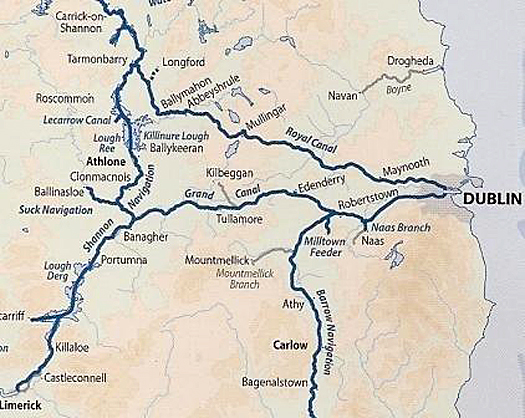
Nick Theato is Treasurer of the Lough Derg RNLI Fundraising Branch and Lough Derg Lifeboat Station at Dromineer.
Pat Kelly is Secretary of the Lough Derg RNLI Fundraising Branch.
Nick and Pat welcome all sponsorship, however modest. Contributions can be pledged online at http://www.mycharity.ie/event/green_silver_event/. Nick may be contacted on 086 1738014 ([email protected]). Pat is at 087 6908099 ([email protected]).
For further details / interviews / photos: Contact Pat Kelly at 087 6908099 ([email protected]). Support photography: Gerardine Wisdom 087 6522582 ([email protected]).
Cruising Association Holds First 2011 Meeting on Dublin Bay
Dinner will be served at 8pm at a reduced cost of only €20 per person, Drinks in the bar, wine available @ €18 per bottle.
The is rally open to all cruising sailors, and there will be a brief presentation of the Strangford Lough cruise in late July.
The Cruising Association AGM will be held in a private room from 1900 – 1930 for CAI members interested in attending.
Latest Cruising news
Anglers, Developer Row Over Liffey Jetty
A private inland waterways jetty on the Liffey has caused unrest among local anglers, the Circuit Civil Court heard on Thursday.
According to The Irish Times, the Dublin and District Salmon Anglers' Association is seeking a court order against entrepreneur David Wright - of the noted Howth family of fish suppliers - who they claim is 'disturbing the calm of the river'.
The group also accused him of trespassing on a stretch of river leased to them by Dublin City Council for exclusive fishing rights, and were obliged by their lease to protect the fishery.
It is alleged that Wright built a double jetty with retractable pontoons at the rear of two houses he owns on the riverbank in Chapelizod.
His barrister Edward Farrelly told the court he would challenge Dublin City Council's right to lease the river.
Liffey Odyssey for Canoeists This Saturday
The annual Odyssey on the Liffey canoe tour is scheduled for this coming Saturday 20 November.
Organised by the Canoeing Ireland Training Centre and the Wild Water Kayak Club, the tour runs from the Garda Boat Club in Islandbridge along the capital's historic quays to the East Link Bridge in the Docklands.
The event is open to all paddlers who have a minimum of Level 2 skills standard and who have their own canoe or kayak. Registration details are available on Canoeing Ireland's website at www.canoe.ie.
Dublin Port Tugs Making Magic 'Rainbow' Happen
The spectacular effect of the life-size rainbow had never been achieved before in Ireland. Steve Green, the director of the advertisement used a 35mm film, with footage from HD cameras, including one mounted on the helicopter which hovered over the 'new' landmarks of the 'Docklands'.
The imaginative advertisement was created by Sweet Media, the production company chosen to produce the campaign, under the direction of the National Lottery's advertising agency, DDFH&B. The soundtrack for 'Making Magic Happen' is the appropriately titled 'Pocketful of Rainbows', sung by Elvis Presley. The version used is Take 16 from the 1960 recording sessions for the 'G.I. Blues' soundtrack.
As for the stars of the advert, the tugs are named after Irish figures, Shackleton, named in honour of Antartic explorer Sir Ernest Henry Shackleton and Beaufort, named after Navan-born, Sir Francis Beaufort, who created the world-renowned wind-scale measurement.
The 50-bollard ton tugs cost €6m each and were built at the Astilleros Zamakona Shipyard, Bilbao. In March the tugs officially entered service after a joint naming ceremony was held in Dublin Port.
To view the tugs in water-firing, making magic mode!... click the link here



























